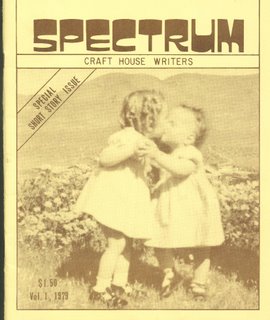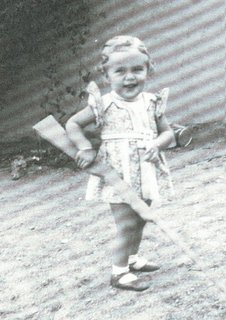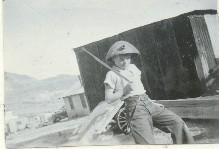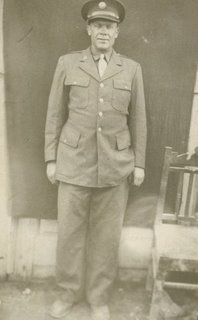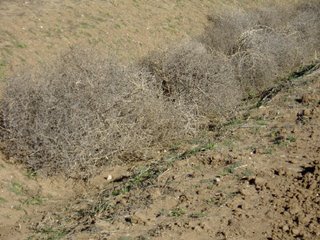
When I was a child, I would curl up in bed under three blankets, covering my ears against the wind howling outside. We could tell, by wind-clouds piling up along the tops of the Sierra-Nevadas, when there would be a big blow. The wind always came from the west, blowing sand into waves of dunes in the front yard, settling a fine, thick silt on the window sills and in the corners. It made spooky howling noises in the stovepipe and the clanging of the chains on my swingset against the bars kept me awake all night. As I looked out my bedroom window, the red light from the Penny Arcade sign across the street bloodied every grain of sand, turning the whole window red. Sand blasted the paint off cars and pitted windshields, and blotted out the sun. It stung our eyes and textured our dinner and turned tumbleweeds into flying missiles.
Once, the circus came to town in the middle of a terrific windstorm. Their Big Top swayed and groaned, the ropes and posts and canvases snapped like ships in the blowing sand. The daring young men on the flying trapeze may have been daring, but they were not fools, so they stayed safely on the ground while their swings billowed and lifted without them. Still, we saw monkeys (One, wearing a little red coat with gold buttons, bit my finger, outstretched in friendship. I never tried that again!) and elephants, lion-tamers and clowns. We saw Bambi-the-Snake-Woman, and Bobo-the-Dog-Faced-Boy. The Man-Turned-to-Stone invited our hands to feel the vibrations on his leg while he spoke. A nine-foot giant mummy, leathery and brown, reclined in a wood-and-glass case. Beside him in a smaller case there was another mummy of an ancient infant that looked like a little shriveled, brown monkey. We ate pink spun-sugar cotton candy, and shiney, red candy apples-on-a-stick.
And I remember once, Gypsies camped their tents and wagons at the far end of our lot. Someone said Gypsies stole children, dyed their skins brown with the juice of berries and walnuts, and they had to be Gysies for the rest of their lives. I lived in
horror they might kidnap me, yet I secretly hoped they would, so that I could live a life traveling in tents, wearing gold earring and bracelets up to my elbows, and dancing to the music of tambourines. However, I took the long, round-about way to school for as long as they camped there. I never heard one tambourine. The closest I ever came to living like a Gypsy was years later when I travelled around the country with a theater reperatory troupe--in a tan station wagon overflowing with old show programs, candy wrappers, banana skins, etc., and we made our own peculiar music (of a sort). In school every morning, the teacher gave us mimeographed pictures to color of Farmer Brown, Farmer Brown's Wife, and Farmer Brown's Boy Bill. (Never once Gypsies!)
I remember the hills and gullies full of sage and creosote and cactus, coyotes and rattlesnakes and lizards. When more and more people began to move in, they all vanished. The shrill night howling of coyotes used to send shivers of fear up and down my back. Now most of the remaining coyotes are pacing up and down in zoos, although the sheepmen say some still attack and kill their sheep. I suffer with the sheep, but my heart is with the coyotes. I think the whole history of creation is in those sheep and the coyotes.


